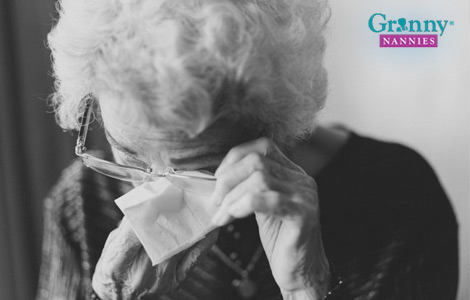 Loneliness is one of the biggest challenges when you lose a spouse -When you grieve, you can feel both physical and emotional pain. Therefore proper emotional and physical care for the surviving spouse is an essential component of senior care. While most seniors gradually adapt to life without their spouse, there are many challenges they may have.
Loneliness is one of the biggest challenges when you lose a spouse -When you grieve, you can feel both physical and emotional pain. Therefore proper emotional and physical care for the surviving spouse is an essential component of senior care. While most seniors gradually adapt to life without their spouse, there are many challenges they may have.
Loss of Independence
Couples that are frail or ill may have been able to maintain their independence together by compensating for one another. A wife with limited mobility may rely on her husband to help her get up and down the stairs or carry items, such as groceries. She in return could be covering for his memory loss by prompting him to take his medication, pay bills or provide directions in the car. In these cases, when an elderly person loses their spouse, their inability to manage daily tasks on their own becomes apparent and they are no longer able to manage on their own.
New Responsibilities
Even for those seniors who are in good health, there will likely be many new and overwhelming tasks to learn. Many elderly couples have set roles within their marriage, where one spouse is solely responsible for a certain job. For example, many husbands have never been required to prepare a meal or wash their clothes and consequently may struggle with domestic chores. Or, if the responsibility of paying bills and managing funds fell to her husband, a widow may feel at a loss when faced with financial decisions.
Isolation
Seniors who suffer the loss of a spouse can feel plunged into isolation. If they were living independently, as opposed to in an assisted living facility, the surviving spouse is now alone. Often, older couples are always together and therefore don’t feel the need to develop a wider social network. The loss of their life-long companion is felt in every aspect of their day as well as having to sleep alone, often for the first time in decades. Meals, routines, and outings such as afternoon walks may get neglected causing the surviving spouse to get stuck in a continuing cycle of depression.
How Granny NANNIES Can Help.
Scheduled home care visits by a professional care provider can boost general well-being and improve the quality of life by helping the surviving spouse maintain a level of independence while still offering a level of care and support when needed.
Knowing when to seek outside help and where to find quality care can be challenging. Granny NANNIES was established in 1990 to provide seniors with in-home care. Operating under the founding premise that reliable and affordable senior home care should be available to everyone, professional care providers offer personalized services to meet the requirements of any individual, regardless of age or need, in their home. Services are available 24-hours a day, 7-days a week.